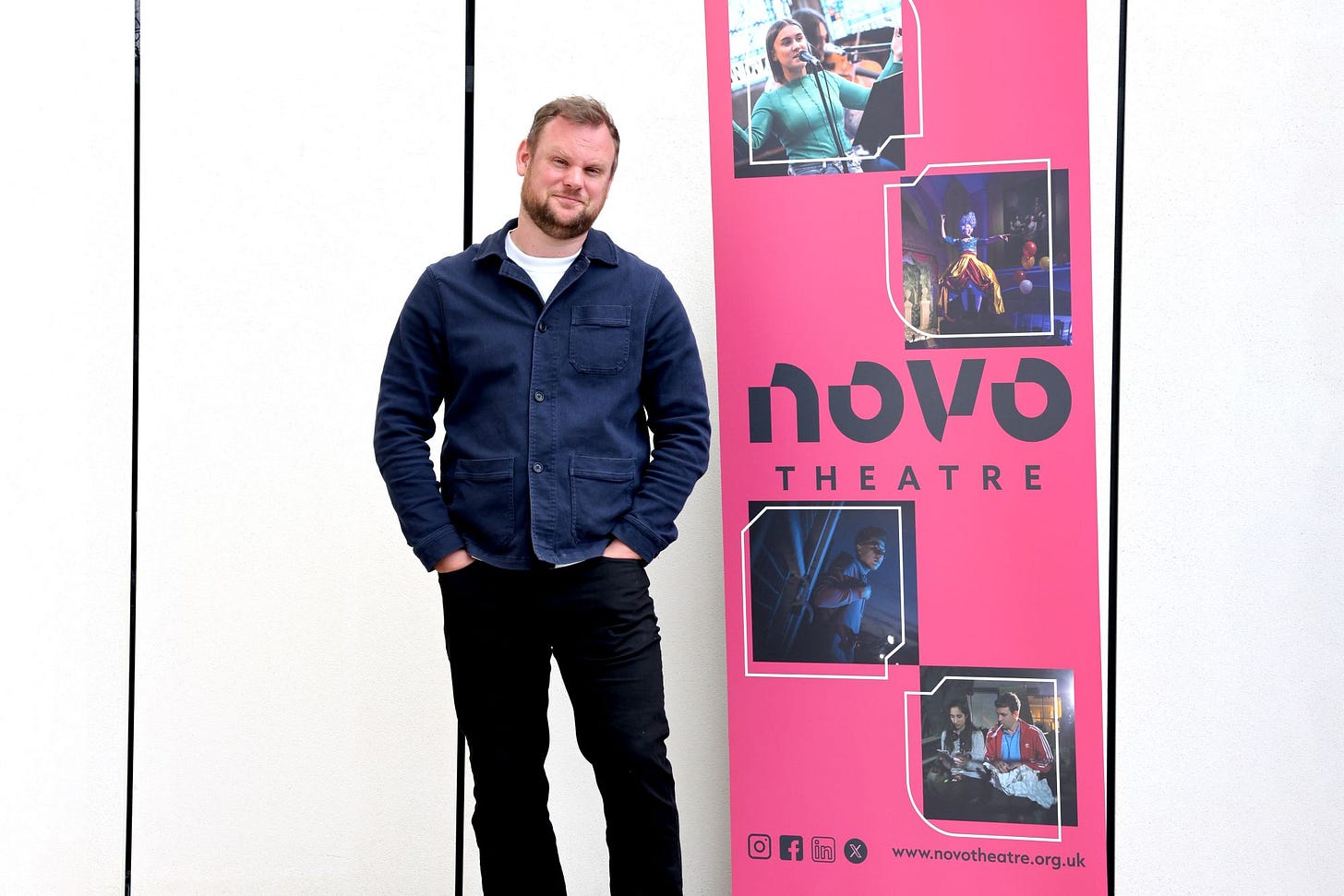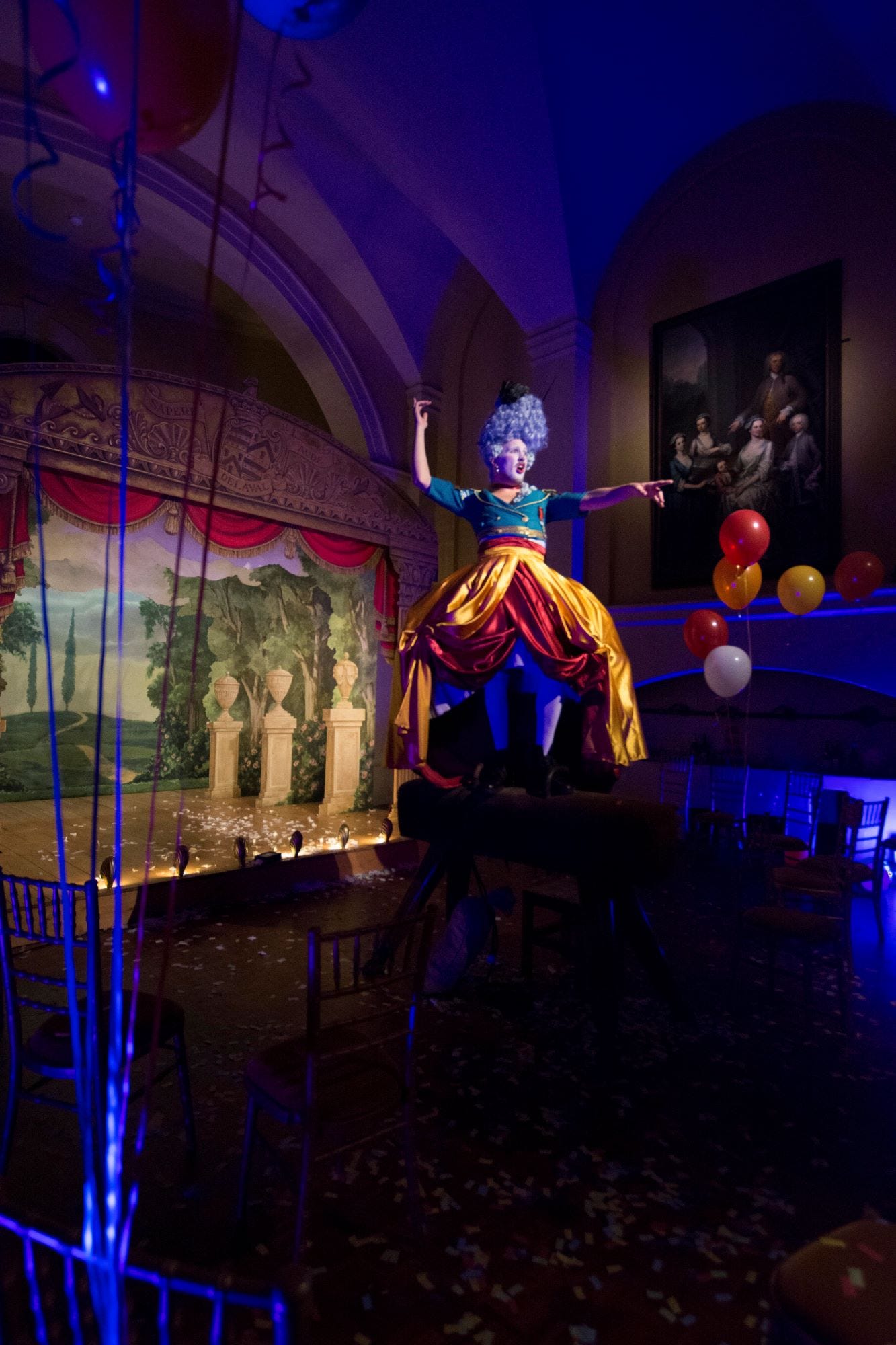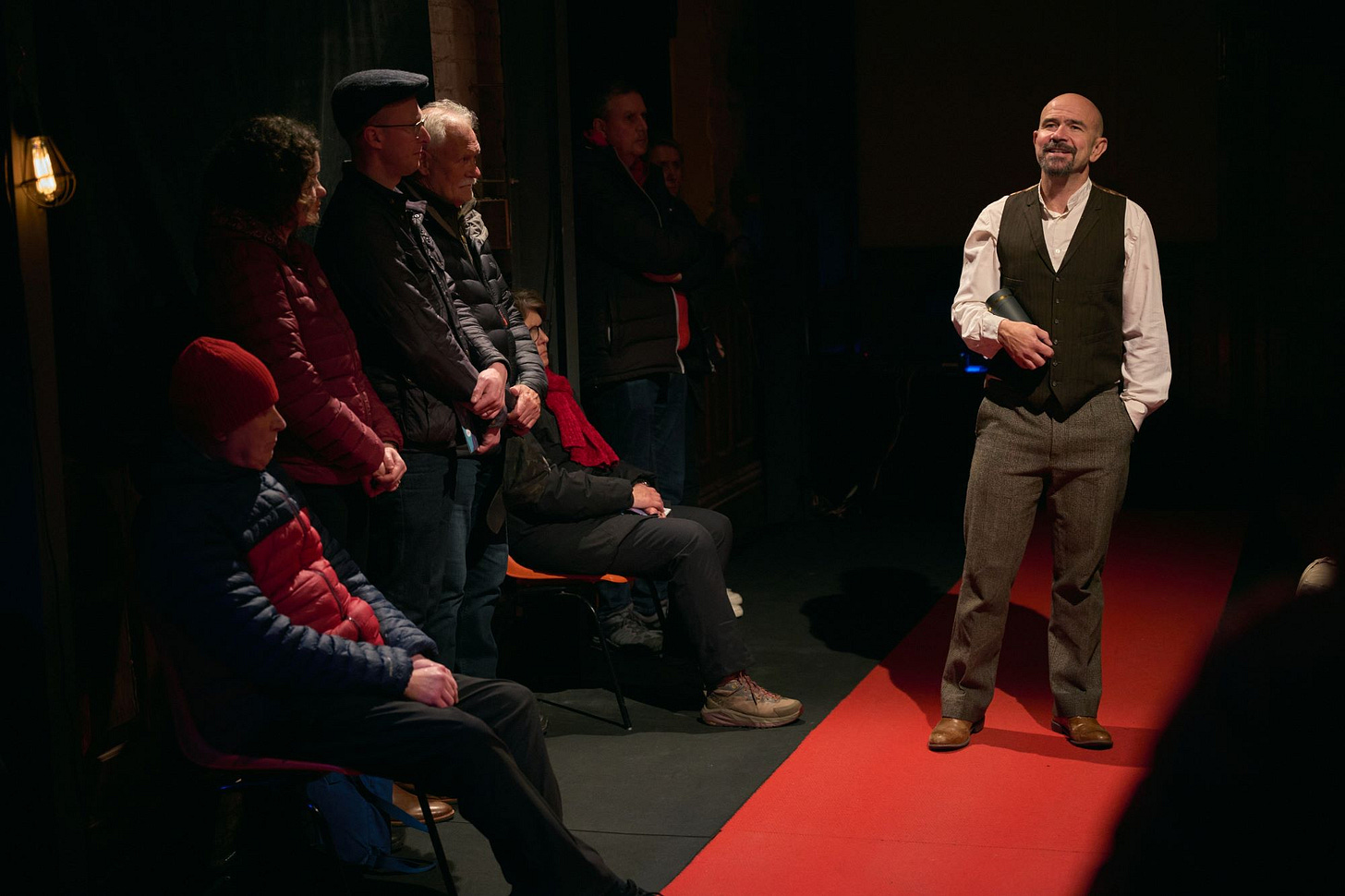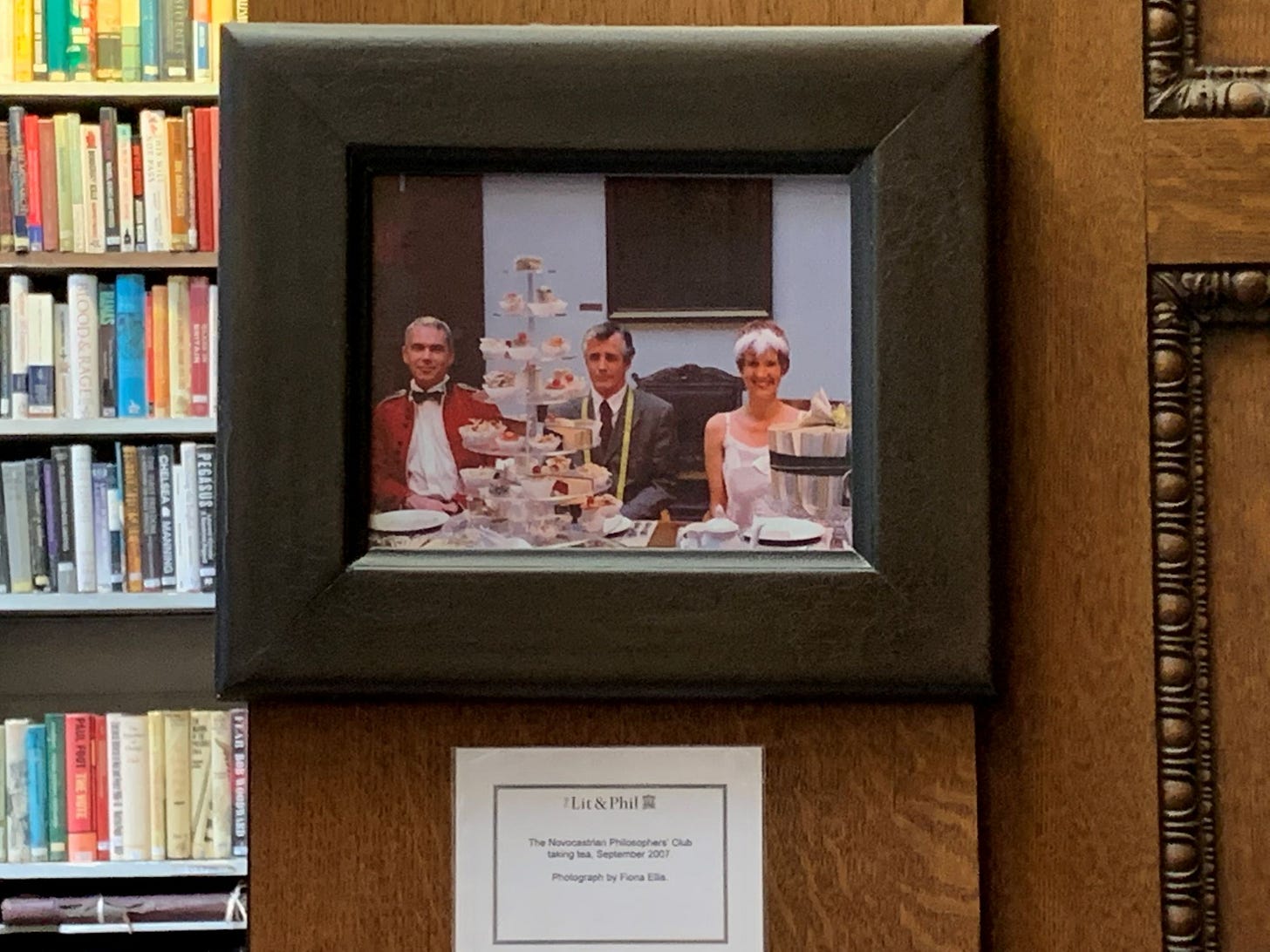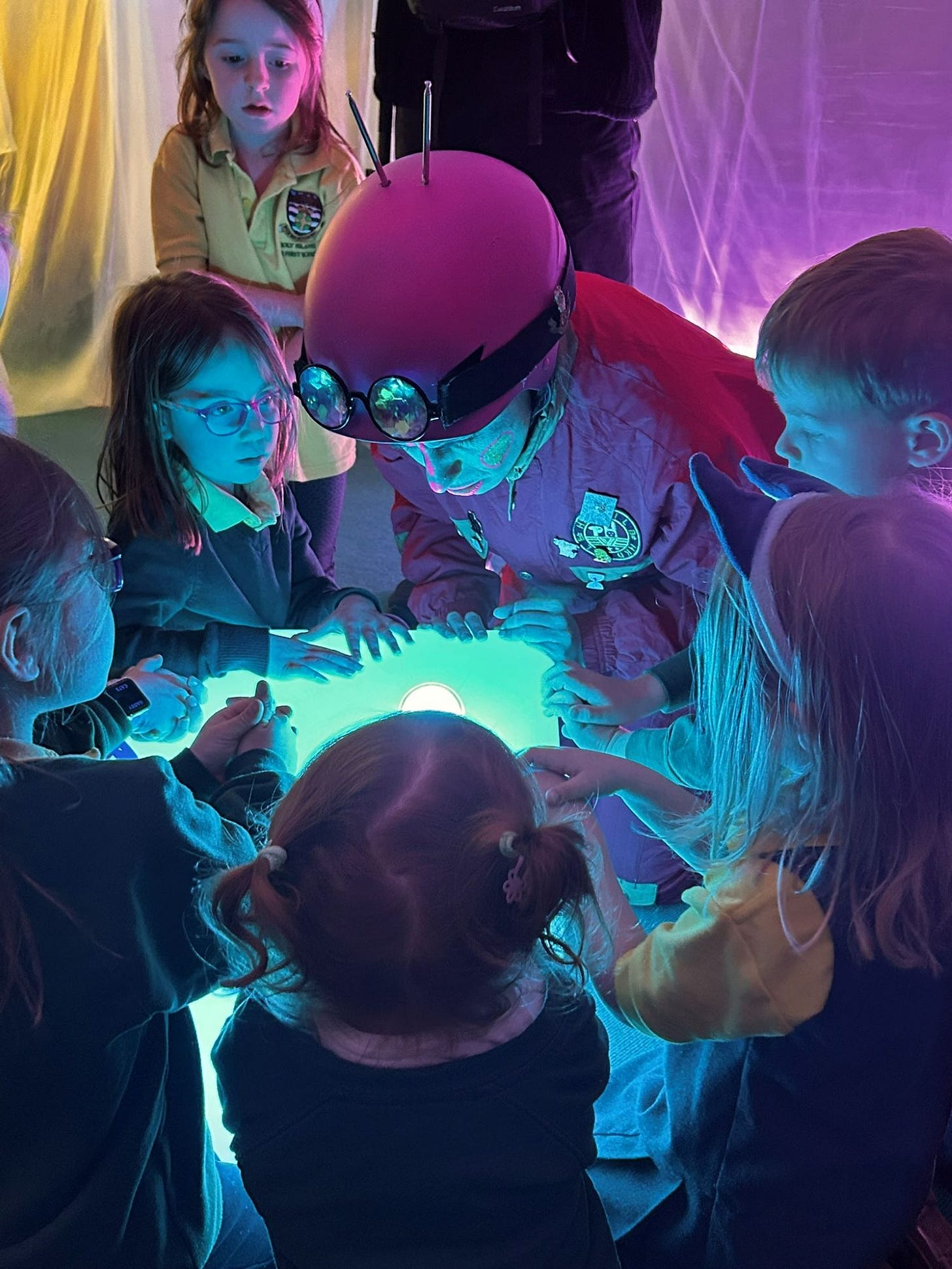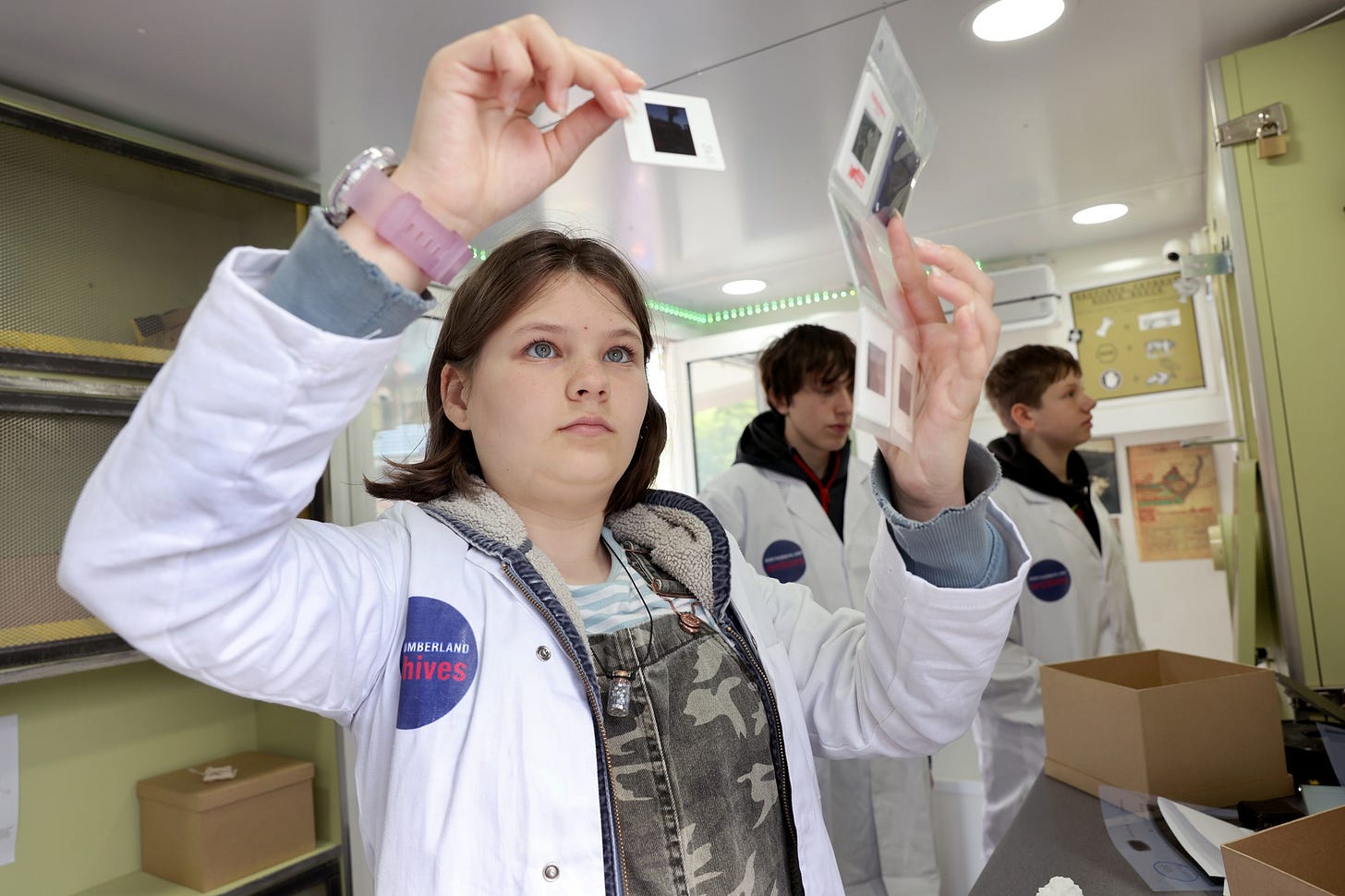New name, same goals for popular theatre company
Embracing change in Northumberland
A summer name change has seen the North East theatre company formerly known as November Club cast off the shades of autumn.
As of this week, the well-regarded outfit is strutting its stuff as Novo Theatre, ‘novo’ being Latin for new.
As for ‘theatre’, artistic director Joe Hufton says that’s self-explanatory in a way the old name never was.
There’s no doubt the company has done well as November Club, based in Northumberland and with a mission to put stories of the county and its people on the stage (or not – since the company has performed in many unorthodox spaces, including a livestock auction ring).
Since being founded by Cinzia Hardy in 2007, it has accrued fans across the region, won awards and become one of Arts Council England’s regularly funded National Portfolio Organisations (NPOs).
But a wind of change was blowing.
“When I took over four-and-a-half years ago, one of the trustees said, ‘You might want to think about the name’,” recalls Joe.
“During the first years after I’d taken over there was a sense that the name meant a lot to people in the organisation and was really important.
“But there came a feeling that it was a potential barrier to those who didn’t know about us. I had people at various times think we were an amateur group or even a support organisation for older people.
“We always knew at some point we would have to refresh.”
The rebrand comes on the heels of a change of location although Joe says the move six months ago from Morpeth to Alnwick was coincidental.
Having served them well, the Morpeth base had become unsuitable and Alnwick Playhouse had space to let in a building it had acquired next door.
“It’s really good to be here,” says Joe in the Playhouse café where meetings such as this one tend to take place.
“It hasn’t changed what we do – just where the office is.
“We are very much enjoying having the Playhouse as our landlord. I know Damian (that’s Damian Cruden, artistic director of Alnwick Playhouse) because he gave me my first professional job in theatre, at York Theatre Royal.
“That was as an actor but it’s funny that he ended up here and we were looking for new premises. It’s working really well for us and there are new opportunities to being in Alnwick.”
In future, those opportunities will be sought under the new name suggested by El Roboto, the Tyneside-based design agency.
Joe says he insisted they talk to audience members and stakeholders before offering suggestions.
“I was prepared for them to come back and say we should stay as November Club or even to say it should be radically different.
“During the consultation everybody said they could understand the rationale behind the name change and I was clear I wanted it to seem like the same organisation.
“They came back with Novo Theatre which we like for various reasons. You can sort of find the new name in the old, with ‘novo’ sounding as if it might be short for November.
“But that it also means ‘new’ feels interesting. The agency felt strongly it was the right name and it made sense to us.”
Coincidentally, the company’s award-winning first production in 2007, which took audiences on a journey of discovery around Newcastle’s Lit & Phil, was called The Novocastrian Philosophers’ Club.
Under its new branding, Joe hopes the perennial quest for new audiences will become a little easier.
“Hopefully it will lead to new opportunities and conversations and see new people coming to us.
“A change can rejuvenate you. It’s refreshing and exciting, although I really hope people recognise it’s not a complete departure.
“It does come at a difficult time for the sector. People from various creative organisations I speak to are really stretched and there are lots of questions over funding.
“Making work is tricky in this climate. Touring theatre is struggling and we are a touring theatre company. But that’s why it’s important we’re fit for the future and are clear about who we are.
“We are a theatre company and proud of it and that’s why you should fund us or work with us.”
Joe says his board allocated money for rebranding “a long time ago” and suggests it will enable the company to do what it always does… only better.
Looking ahead, he says there’s an ambition to build on the success in March of Home from Home, an ‘immersive’ theatre experience led by writer Lisette Auton and designer Amy Watts with pupils of Lowick & Holy Island C of E First School.
For a current project, a creative collaboration with Northumberland Archives, Amy has repurposed a council library van as a mobile escape room.
As part of The Archives Job, youngsters are encouraged to become junior archivists, solving puzzles from history in order to escape the van.
“It's great to see a different audience enjoying our work,” says Joe.
“I’ve always described our work as being a conversation between where we have been and where we’re going.
“It’s telling the stories of Northumberland and the North East while also looking to our future.”
A project in Blyth, looking at the town’s history, is in the offing and work on Josey, an ambitious new musical about Josephine Butler, the Northumberland-born 19th Century social reformer, is progressing in stages.
Joe hopes the show, written and composed by Katie Doherty, will be ready for a premiere next year.
And while Novo Theatre, as we must learn to call it, strives to please audiences, it is also committed to growing the creative sector in Northumberland.
Joe was proud the company secured extra Arts Council funding to develop a strand of work called Grow which is now to be known as Novo Talent.
It began two years ago, addressing a perceived lack of creative skills development across the region. Research had suggested companies could do more to support freelance artists on whom they relied.
“We launched Grow which works in schools but also with freelancers at different stages in their career, offering bursaries in what is essentially a talent development programme which dovetails with our productions.
“The results have been remarkable. We know we’re reaching more young people who are considering creative careers and have embedded work experience in the company.
“And we have been able to offer contracts to freelancers supported by bursaries to help with their professional development.
“It feels like a good way of working. It’s dynamic and, we think, unique in the region.”



